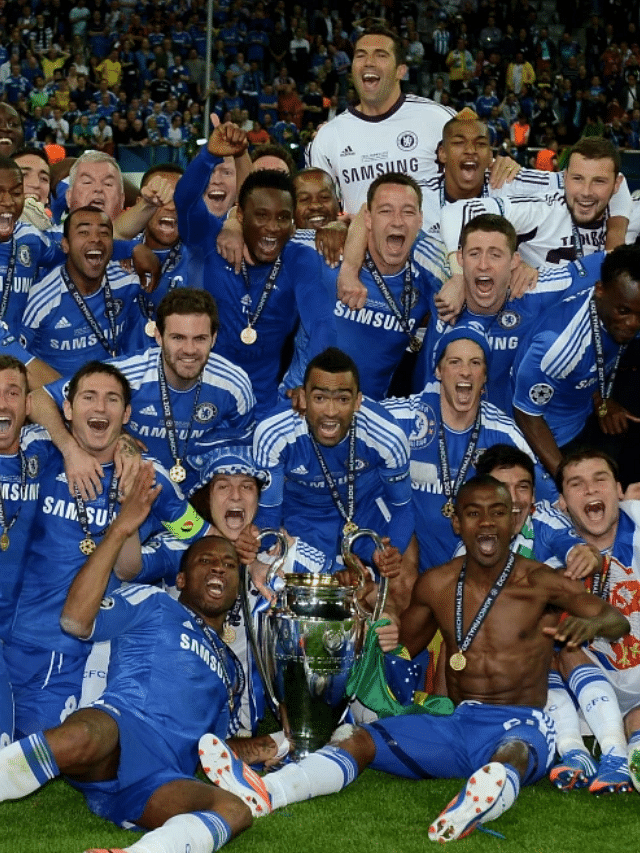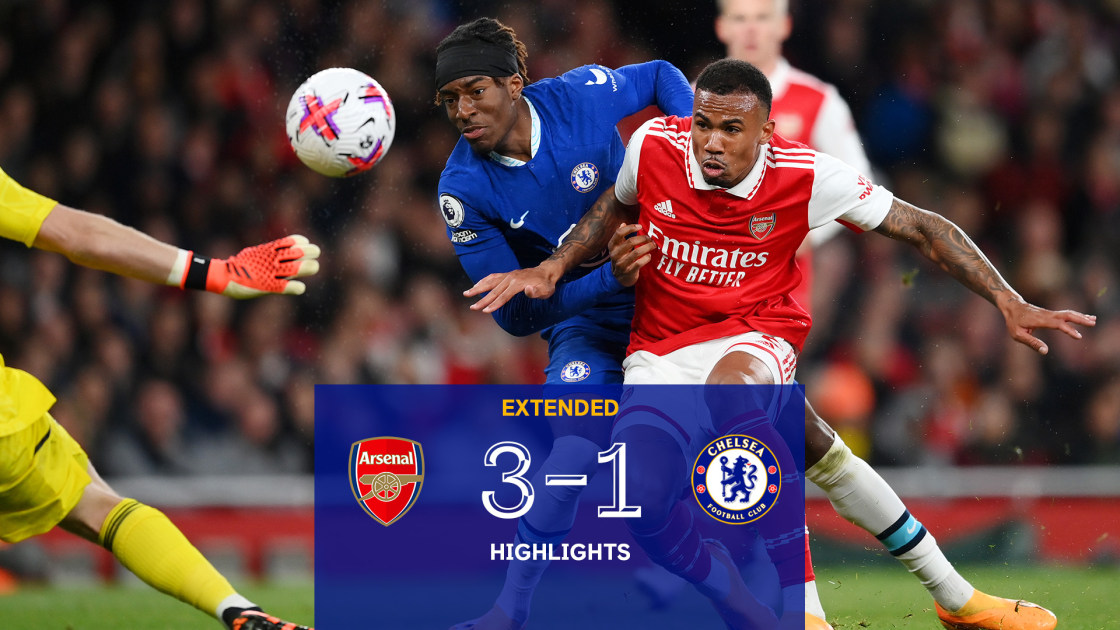
Against All Odds: The Greatest UCL Underdog Stories
The UEFA Champions League, a theatre of dreams and a crucible of footballing excellence, is often synonymous with the titans of European football. Year after year, the narrative revolves around perennial powerhouses like Real Madrid, Barcelona, Bayern Munich, and Manchester United, with their colossal budgets, galaxy of superstars, and storied histories. Yet, amidst this predictable landscape, there occasionally emerges a narrative so compelling, so defying of logic, that it etches itself into the annals of footballing folklore: the underdog story.
These are tales of teams who, against all financial might, all statistical probability, and all pundit predictions, dared to dream and, astonishingly, achieved the impossible. They remind us that football, at its heart, is not just about money or individual brilliance, but about collective spirit, tactical genius, unwavering belief, and a little bit of magic. This article delves into some of the greatest UCL underdog stories, celebrating the triumphs that redefined expectations and captivated the world.
1. Borussia Dortmund (1997): The German Revelation
In the mid-1990s, European club football was largely dominated by Italian giants like Juventus and AC Milan, and English heavyweights like Manchester United. German clubs, while competitive, hadn’t lifted the European Cup since Hamburg’s triumph in 1983. Borussia Dortmund, under the shrewd management of Ottmar Hitzfeld, had built a strong domestic side, winning back-to-back Bundesliga titles in 1995 and 1996. However, on the grand European stage, they were still considered outsiders.
Their 1996-97 Champions League campaign saw them navigate a challenging group before facing Manchester United in the semi-finals, a formidable opponent boasting players like Eric Cantona and David Beckham. Dortmund stunned United with two identical 1-0 victories, setting up a final clash against the defending champions, Juventus.
Juventus, led by Marcello Lippi, was an intimidating force, featuring Zinedine Zidane, Alessandro Del Piero, Didier Deschamps, and Christian Vieri. They were overwhelming favourites, playing in their third consecutive final. The match, held in Munich’s Olympiastadion, was expected to be a coronation for the Italian champions.
However, Dortmund had other ideas. In a stunning first half, veteran striker Karl-Heinz Riedle scored two quick goals, giving Dortmund an improbable 2-0 lead. Juventus pulled one back through Del Piero, setting up a tense finish. Then came the moment of pure genius that sealed Dortmund’s legend. Just 16 seconds after coming on as a substitute, 20-year-old Lars Ricken, with his first touch, latched onto a through ball and audaciously chipped the ball over Angelo Peruzzi from 25 yards out. It was a goal of audacious brilliance, a testament to the belief and youthful exuberance within the Dortmund squad.
The final whistle blew, and Borussia Dortmund, a team built on tactical discipline, hard work, and a sprinkling of homegrown talent, had conquered Europe. Their victory was a triumph of the collective over individual star power and a powerful statement that the Champions League was not solely the domain of the established elite.
2. FC Porto (2004): Mourinho’s Masterpiece
When we speak of underdog stories, it’s impossible to overlook FC Porto’s sensational Champions League victory in 2004. This was the season that truly launched the legend of José Mourinho, transforming him from a promising young coach into "The Special One." Porto, hailing from Portugal’s relatively smaller league, had won the UEFA Cup the previous season, but nobody seriously tipped them to go all the way in the Champions League. Their squad, while talented, lacked the household names and astronomical transfer fees associated with the continent’s major clubs.
Porto’s journey was fraught with challenges. They narrowly escaped their group, famously beating Manchester United in the Round of 16 with a dramatic last-minute goal from Costinha, followed by Mourinho’s iconic touchline sprint. They then dispatched Lyon and Deportivo La Coruña, showcasing a blend of tactical pragmatism, defensive solidity, and opportunistic attacking play.
The final saw them face AS Monaco, another unexpected finalist who had stunned Real Madrid and Chelsea en route. Held in Gelsenkirchen, the match was a clash of two dark horses, but Porto, under Mourinho’s meticulous guidance, were the more organised and ruthless side. Goals from Carlos Alberto, Deco, and Dmitri Alenichev secured a comprehensive 3-0 victory, crowning Porto as European champions.
Porto’s triumph was not just a testament to their fighting spirit but a masterclass in tactical execution. Mourinho had instilled an unshakeable belief in his players, convincing them they were capable of beating anyone. Their victory proved that with exceptional management, a cohesive team unit, and a clear game plan, a club with a fraction of the budget of its rivals could indeed reach the pinnacle of European football. It remains one of the most remarkable and unexpected Champions League wins in history.
3. Chelsea (2012): The Impossible Dream
Chelsea’s 2012 Champions League victory is perhaps the quintessential underdog story of the modern era. Plagued by internal strife, an aging squad, and a mid-season managerial change, the London club seemed destined for a trophyless season, let alone European glory. Manager André Villas-Boas was sacked in March, with the team struggling in the Premier League and seemingly on the brink of elimination from the Champions League after a 3-1 first-leg defeat to Napoli in the Round of 16.
Roberto Di Matteo, a former Chelsea player, took over as interim manager, and what followed was nothing short of miraculous. Against Napoli, Chelsea produced a stunning comeback, winning 4-1 after extra time in the second leg. Their quarter-final clash against Benfica was overcome, but the semi-final drew them against the formidable Barcelona, then considered the greatest club team in history, featuring Lionel Messi, Xavi, Iniesta, and Pep Guardiola’s tiki-taka philosophy.
The first leg at Stamford Bridge saw Chelsea absorb immense pressure, with Didier Drogba scoring the only goal from one of their few chances. The second leg at Camp Nou was an epic defensive masterclass. Reduced to 10 men early in the first half after John Terry’s red card, and going 2-0 down, Chelsea seemed doomed. Yet, Ramires’ exquisite chip just before halftime gave them a crucial away goal. In the dying minutes, with Barcelona relentlessly attacking, Fernando Torres, previously ridiculed for his goal drought, scored on a breakaway, securing an aggregate 3-2 victory and one of the most improbable upsets in Champions League history.
The final pitted them against Bayern Munich, playing in their home stadium, the Allianz Arena. Again, Chelsea were massive underdogs. Bayern dominated the match, taking a late lead through Thomas Müller. With minutes remaining, Didier Drogba, Chelsea’s talisman, rose to head home an equalizer from a corner, taking the game to extra time and then penalties. Petr Cech made crucial saves, and it was Drogba who coolly slotted home the winning penalty, completing a fairytale.
Chelsea’s 2012 triumph was a testament to resilience, collective will, and moments of individual brilliance under immense pressure. It defied every logical prediction, proving that even a team in disarray, with their backs against the wall, can achieve the impossible when they refuse to give up.
4. Ajax (1995): The Youthful Revolution
Before the financial disparities truly widened, Ajax’s 1995 Champions League triumph was a powerful reminder of the potential of youth academies and tactical genius. Under the visionary management of Louis van Gaal, Ajax fielded a team with an average age of just 23, featuring future stars like Clarence Seedorf, Edgar Davids, Patrick Kluivert, Marc Overmars, Edwin van der Sar, and Frank and Ronald de Boer. Many of them were products of Ajax’s renowned youth system.
They were a stark contrast to the established giants, particularly Fabio Capello’s AC Milan, who were the reigning European champions and boasted a squad full of seasoned internationals. Ajax faced Milan in the group stage, beating them home and away, showcasing their innovative 3-4-3 system, fluid passing, and relentless pressing.
Their journey continued with dominant displays against Hajduk Split and Bayern Munich, setting up a final rematch against AC Milan in Vienna. Milan were once again the favourites, known for their impenetrable defence and star-studded attack. The final was a tense, tactical affair, with both sides largely cancelling each other out.
It took until the 85th minute for the breakthrough. Louis van Gaal made a brave substitution, bringing on 18-year-old Patrick Kluivert. Just five minutes later, Kluivert received a pass from Frank Rijkaard (another veteran who had returned to his boyhood club) and slotted the ball past Milan goalkeeper Sebastiano Rossi. It was a goal that encapsulated Ajax’s philosophy: youthful audacity combined with tactical precision.
Ajax’s 1995 victory was a romantic triumph for football purists. It showed that a team built on homegrown talent, tactical innovation, and a collective belief in a specific playing philosophy could overcome financially superior opponents. It was a beacon of hope for clubs that couldn’t compete in the burgeoning transfer market, proving that intelligence and spirit could still conquer brute financial force.
5. Ajax (2019): The Near Miss That Captivated
While they didn’t lift the trophy, Ajax’s run to the semi-finals in the 2018-19 Champions League season is arguably one of the greatest underdog stories in the competition’s history. After their 1995 triumph, Ajax had largely faded from the European elite, often serving as a selling club for bigger leagues. Their squad, managed by Erik ten Hag, was once again built around exciting young talents like Frenkie de Jong, Matthijs de Ligt, Donny van de Beek, and Hakim Ziyech, complemented by experienced players like Dušan Tadić.
Their journey began in the qualifying rounds, navigating past Sturm Graz, Standard Liège, and Dynamo Kyiv just to reach the group stage. They then impressed in a group containing Bayern Munich, before being drawn against the reigning champions, Real Madrid, in the Round of 16. Real Madrid, winners of the previous three Champions League titles, were expected to brush them aside.
After a 2-1 defeat at home in the first leg, Ajax produced a scintillating performance at the Santiago Bernabéu, dismantling Real Madrid 4-1 with a display of breathtaking attacking football. The footballing world was stunned.
Their quarter-final opponents were Juventus, featuring Cristiano Ronaldo, fresh off a hat-trick that had eliminated Atlético Madrid. Ajax once again showed no fear, drawing 1-1 in Amsterdam and then travelling to Turin to beat Juventus 2-1, with captain Matthijs de Ligt scoring the decisive header. Their fearless, free-flowing football was a joy to behold, reminiscent of their 1995 predecessors.
The semi-final against Tottenham Hotspur saw Ajax take a 1-0 lead in London, then go 2-0 up at home in the second leg, leading 3-0 on aggregate at halftime. The dream seemed within reach. However, a stunning second-half hat-trick from Lucas Moura, culminating in a goal in the sixth minute of injury time, snatched victory from Ajax’s grasp in the most heartbreaking fashion imaginable.
Despite the painful exit, Ajax’s 2019 run captivated fans worldwide. They played with a youthful exuberance, tactical intelligence, and an attacking philosophy that defied their financial limitations. They proved that beautiful football, combined with belief and a cohesive unit, could still challenge the established order, even if the ultimate prize eluded them. It was a powerful reminder of what makes football so endlessly compelling.
The Enduring Allure of the Underdog
These stories, from Dortmund’s calculated precision to Porto’s tactical brilliance, Chelsea’s sheer will, and Ajax’s youthful exuberance, are more than just footnotes in the Champions League’s rich history. They are powerful narratives that resonate deeply with fans because they represent hope, resilience, and the triumph of the human spirit.
They remind us that while money and star power often dictate the landscape of modern football, they are not the sole determinants of success. Team spirit, tactical innovation, unwavering belief, and the ability to perform under immense pressure can, on occasion, bridge the widest gaps. These underdog victories are the Champions League’s most romantic tales, offering a perennial glimmer of hope that, against all odds, the beautiful game can still deliver the most unexpected and thrilling of conclusions. And for that, we continue to watch, forever anticipating the next improbable dream.



